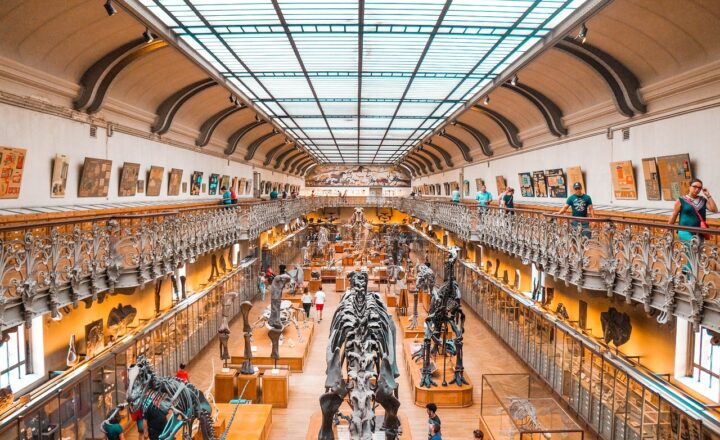From the Field to the Screen: How Sports Shape Our Culture
November 18, 2024

Sports have transcended mere games; they are a powerful force that shapes our culture, identity, and social dynamics. The impact of sports can be felt in various aspects of life— from the traditions we uphold to the significant social movements we witness. In this article, we’ll delve into the multifaceted relationship between sports and culture, examining how sports unify communities, reflect societal changes, and influence various industries.
—
### 1. The Unifying Power of Sports
One of the most profound cultural roles of sports is their ability to unite people across diverse backgrounds. Sports can erase borders, ethnic differences, and social inequalities, fostering a sense of community and shared identity.
– **National Pride and Unity**: Major sporting events, like the Olympics or the FIFA World Cup, inspire national pride. Countries rally behind their teams, celebrating victories as collective achievements. This unity can also extend beyond borders, as international leagues and tournaments bring people together from different cultures.
– **Local Community Bonds**: Local teams and leagues promote neighborhood pride. In many areas, attending games fosters connections among residents, promoting a strong sense of belonging. Events like community fundraisers, youth leagues, or tailgating parties build bonds that extend far beyond sporting events.
– **Cultural Events**: Beyond competition, sports often accommodate cultural expressions such as music, art, and food, creating festivals that celebrate the history and diversity of communities. These events further knit societies together, using sports as a platform for cultural exchange and interaction.
—
### 2. Sports as a Reflection of Society
Different eras and communities express their values and norms through sports. This reflects the shifting nature of society and the issues it grapples with:
– **Social Justice and Activism**: In recent years, athletes have become powerful advocates for social justice, using their platforms to speak on issues like race, equality, and climate change. Movements such as Black Lives Matter have seen a swelling support from players, making sports a vital arena for political discourse.
– **Gender Equality**: Women’s sports have gained visibility, highlighting the ongoing struggle for gender equality. Female athletes like Serena Williams, Megan Rapinoe, and the U.S. Women’s Soccer Team have fought for equitable pay and resources. Their activism underscores cultural shifts in attitudes towards women in sports.
– **Cultural Shifts**: Sports often mirror cultural changes. For example, the growing acceptance of LGBTQ+ athletes reflects wider societal progress toward inclusivity. High-profile athletes coming out has encouraged acceptance and conversations around gender and sexual orientation in sports.
—
### 3. Sports and the Media: A Two-Way Street
The relationship between sports and media is symbiotic, with each influencing the other in profound ways:
– **Increased Visibility**: The rise of sports broadcasting has magnified the visibility of games and athletes, allowing them to reach a broader audience. Documentaries like “The Last Dance,” which chronicles Michael Jordan’s career, delve into the intersection of sports and culture, providing insights into the societal impact of sports icons.
– **Sponsorships and Marketing**: Companies leverage sports for branding and marketing, targeting passionate fan bases. This commercial aspect of sports has permeated culture, intertwining consumerism with athletic identity. Notable endorsements from athletes can elevate brands, as seen with figures like LeBron James and Nike.
– **Content Creation and Fan Engagement**: The digital age has transformed how fans consume sports. Social media platforms allow athletes to connect directly with fans, fostering engagement and discussions that extend beyond the game. These interactions have changed the dynamics of fandom, creating a more participatory culture.
—
### 4. The Economic Impact of Sports
Sports significantly contribute to the economy, impacting various sectors:
– **Job Creation and Economic Growth**: The sports industry stimulates job creation, from professional teams to local businesses that benefit from sporting events. Stadiums serve as venues for concerts and community events, amplifying economic benefits.
– **Tourism**: Major sporting events attract tourists, contributing to a city’s visibility and economic vitality. Cities often invest heavily in infrastructure and marketing to attract these events, recognizing their potential to stimulate local economies.
– **Merchandising and Entertainment**: Sports have expanded into the merchandising realm, with fans buying apparel, memorabilia, and other products to showcase their allegiance. The entertainment aspect of sports has grown too, with esports becoming an increasingly popular field, blending competition with cultural phenomenon.
—
### 5. The Future of Sports and Its Cultural Significance
As we move forward, sports continue to evolve alongside society. Here are some trends to watch for:
– **Technology Integration**: The integration of technology, from virtual reality to enhanced statistics, is changing how audiences experience sports. Fans are increasingly interactive, blurring the lines between viewers and participants.
– **Health and Wellness Trends**: The emphasis on health and wellness in society is also shaping sports culture. There’s a growing focus on fitness, mental health, and overall well-being, influencing coaching methods, training regimes, and even athlete marketing.
– **Globalization of Sports**: The growth of international leagues affirms sports as a global entity, with franchises seeking talent and passion across borders. Sports are gradually becoming a melting pot of global cultures, enriching the experience for fans and players alike.
—
### Conclusion
From fostering community to acting as a catalyst for social change, sports profoundly influence our culture. They are a reflection of our values, a source of entertainment, and a thriving industry that shapes economies. As we venture into the future, maintaining this dialogue between sports and culture will remain crucial, ensuring that the playing field not only entertains but also inspires and unites.
As we celebrate the beauty of athleticism and camaraderie, let us also recognize the power of sports as a dynamic force that continues to shape our world.







